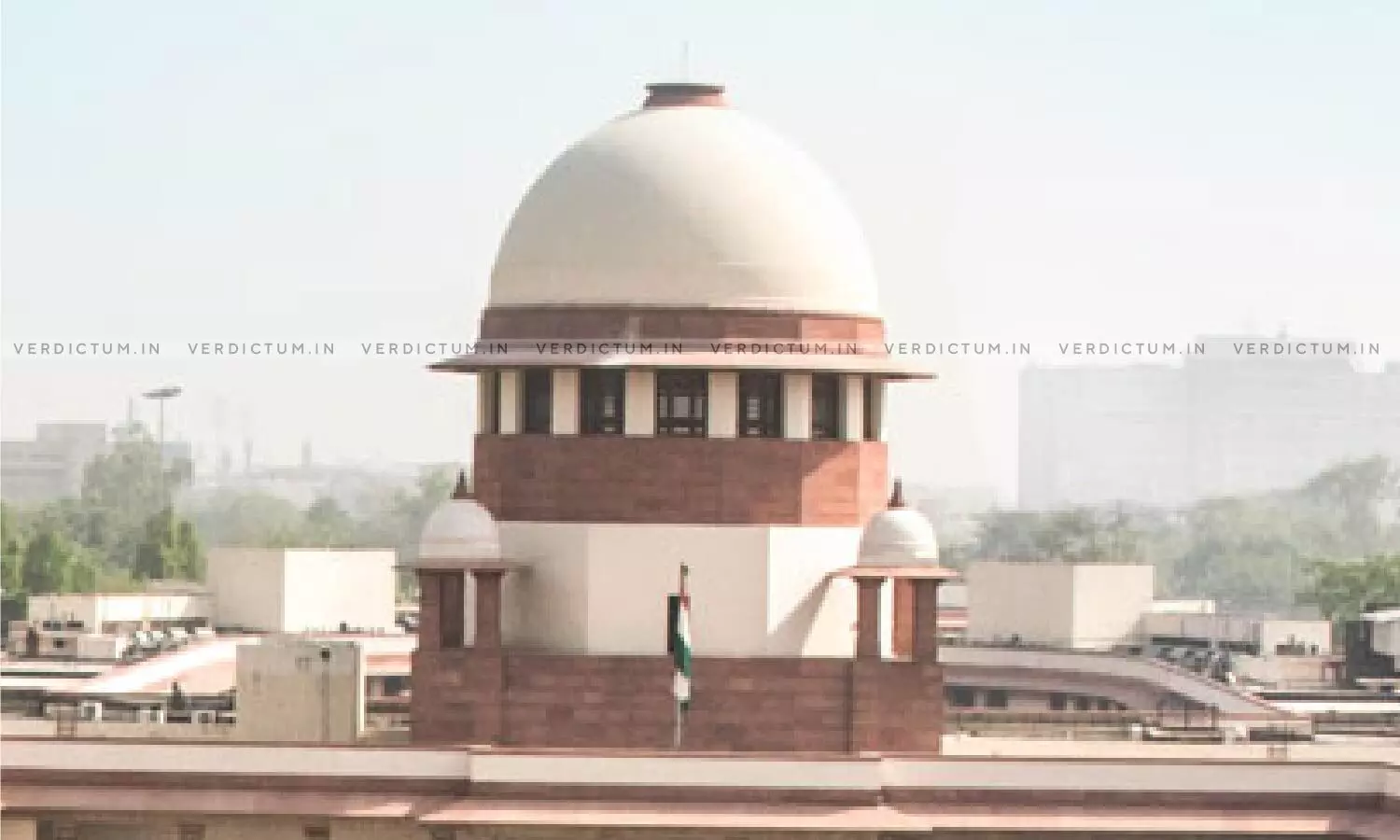
Service Tax, When Already Paid On Merchant Discount Rate, Is Not Separately Payable On Interchange Fee: Supreme Court In Citibank Case
 |
|The Supreme Court, in Citibank case, held that the service tax is not separately payable on the interchange fee when the said tax has been paid on the Merchant Discount Rate (MDR).
In 2021, the Supreme Court dismissed the appeal by the Commissioner of GST and Central Excise (revenue) against the order of the Customs, Excise and Service Tax Appellate Tribunal (CESTAT) which set aside the directions for the M/S Citibank (Bank) to pay service tax, penalty and interest on the amount of the interchange fee received by it in the context of credit card services. In the present appeal, the Revenue had contended that the acquiring bank should have paid service tax on the Merchant Discount Rate (MDR) minus the interchange fee, and the issuing bank should have paid service tax on the interchange fee.
A Bench of Justice Sanjiv Khanna, Justice Sanjay Kumar and Justice R. Mahadevan held, “Recording the aforesaid, the Reference and appeals are disposed of, holding that service tax is not separately payable on the interchange fee, as service tax has been paid on the MDR.”
ASG N Venkataraman represented the appellant, while Senior Advocates Arvind P. Datar and Tarun Gulati appeared for the respondent.
In its 2021 judgment, the Court held, “When a person (i.e., the issuing bank), and an acquiring bank, provide service to another person, in relation to settlement of any credit card transaction, that service, by such person, and the acquiring bank, amounts to a “credit card service” per Section 65 (33a). The unified nature of the service, to another (be it the card holder or the merchant, who are participants in the primary transaction and therefore beneficiaries) is the subject matter of subclause (iii) of Section 65 (33a).”
The Court concurred with the judgment and reasoning by Justice S. Ravindra Bhat in the 2021 judgment holding, “We are of the view that the judgment and reasoning given by S. Ravindra Bhat, J. is acceptable and it is in accordance with the provisions of Clause (iii) of Section 65 (33a) of the Finance Act, 1994,”
Justice Bhat had observed that as per Section 65(33a) of the Finance Act, 1994 (the Act), seven distinct heads of credit card services were sought to be taxed, the idea being to broaden the coverage of the species of services into taxation net. Clause (iii) thereof applied to service by any person, which included service by the issuing bank and the acquiring bank.
“The use of the word ‘and’ in conjuncture is indicative of the legislative intent. MDR is charged/levied by the acquiring bank at the first point in time and subsumes both the acquiring bank fee and the interchange fee of the issuing bank, as well as the platform fee. It is the sum total of the three. The aforesaid charge occurs first in point of time and deduction and payment of service tax at this stage is beneficial to the Revenue. It is not the case of the Revenue that payment by the acquiring bank to the issuing bank, known as interchange fee, is separately chargeable, in addition to the service tax on the MDR,” the judgment read.
Consequently, the Court in the present appeals remarked, “We wonder whether the Revenue would have accepted the bifurcation as argued by them in case the acquiring bank and the issuing bank had taken the stand which is now taken by them. While interpreting a tax provision, one must keep in mind that the legislature ennobles the ease of collection of tax and payment of tax. These principles, especially when there is no loss of revenue, can be taken into consideration for interpreting a provision in case of doubt or debate.”
Accordingly, the Supreme Court disposed of the appeal.
Cause Title: Commissioner of GST & Central Excise v. M/S Citibank N.A. (Neutral Citation: 2024 INSC 808)
Appearance:
Appellant: ASG N Venkataraman; AOR Gurmeet Singh Makker and Mukesh Kumar Maroria; Advocates VC Bharathi, Sreekumar C.N, Zoheb Hussain, Rupesh Kumar and Anmol Chandan
Respondent: Senior Advocates Arvind P. Datar and Tarun Gulati; AOR Mahfooz Ahsan Nazki; Advocates Kumar Visalaksh, Nishant Shah, Sweta Rajan and Udit Jain